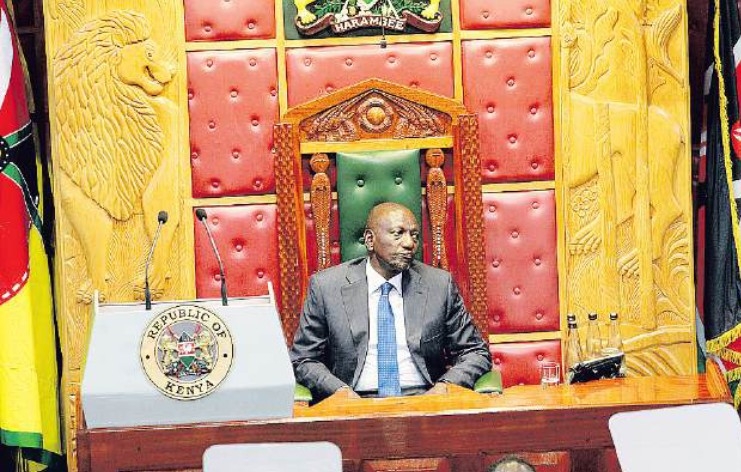The Kenya Medical Practitioners and Dentists Council has received eight complaints related to misleading medical advertisements in the last year.
Most of these complaints are related to plastic and aesthetics practitioners, popularly known as plastic surgeons, who have exaggerated the outcomes of their procedures or failed to disclose the associated risks.
Upon review, the council found that these advertisements violated our strict advertisement guidelines and therefore we had them immediately removed from circulation.
These steps were necessary because, unlike other fields, misleading or unethical advertisements in the medical field can have dire consequences, including permanent health complications or even death.
Additionally, misleading advertisements also undermine the integrity of the medical profession.
It is important to note that cosmetic surgery and elective procedures are some of the more exploited areas in medical advertising not only in Kenya but also in other territories. This is because advertisements often exploit insecurities and promote unrealistic expectations from those seeking these medical procedures.
A notable case from Africa is the 2020 Kwasizabantu Mission scandal in South Africa. This religious mission, which operated several health-related enterprises, faced severe allegations including medical malpractice and misleading advertisements about their health services.
The facility was accused of conducting unethical practices, such as virginity testing and using misleading claims to attract patients. This scandal brought significant scrutiny and highlighted the need for stringent advertising regulations
Whereas this is not the first time that we have seen cases of unethical or misleading advertisements, the explosion of social media means that we are now navigating a more complex environment.
This is because the unregulated nature of social media allows for the rapid spread of misinformation through various platforms.
Additionally, the rise of influencers, who may lack medical expertise, can promote treatments based on endorsements rather than evidence, leading to widespread misconceptions and potentially dangerous practices.
This is why KMPDC monitors social media for unapproved medical advertisements, ensuring that only factual and evidence-based content is promoted. This is similar to regulators in other jurisdictions.
The UK and the US have similarly issued specific guidelines for social media medical advertising, requiring that all health claims be substantiated and that influencers disclose paid partnerships. These measures enable consumers to make informed decisions.
Furthermore, the UK’s Medicines and Healthcare Products Regulatory Agency enforces the Human Medicines Regulations 2012, which stipulate that all medical advertisements must be accurate, balanced, and not misleading.
Prescription-only medicines cannot be advertised directly to the public, ensuring that medical decisions are guided by professional healthcare providers rather than marketing tactics. Additionally, the Advertising Standards Authority monitors advertisements across media, enforcing the CAP and BCAP Codes to prevent false claims and ensure substantiation of health benefits. The General Medical Council also provides guidelines emphasising honesty and evidence-based advertising, protecting patients from potentially harmful misinformation
In Kenya, medical practitioners are guided by the Medical Practitioners and Dentists (Advertising) Rules, 2016. These rules mandate that all medical are factual and not misleading. This ensures that only approved treatments are promoted and that advertisements do not exaggerate the benefits or downplay the risks associated with medical procedures.
The KMPDC’s role is becoming more critical in the social media age because the information is easily accessible, has a wider reach and is often unchecked. We therefore urge healthcare providers, advertisers and the public to prioritise truth and transparency in all medical communications. Together, we can build a healthcare system founded on trust, knowledge and a commitment to patient safety.
The writer is the KMPDC CEO
















